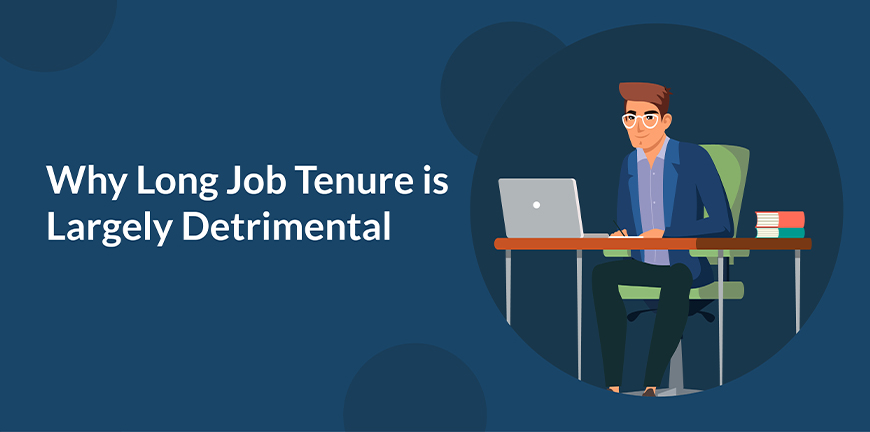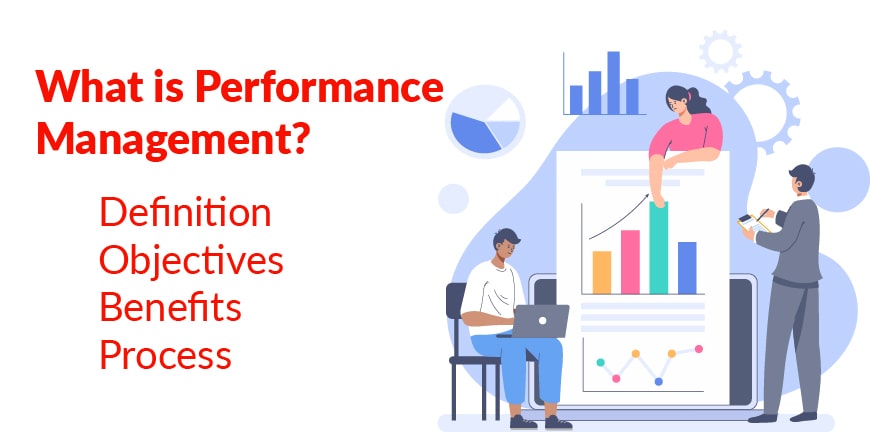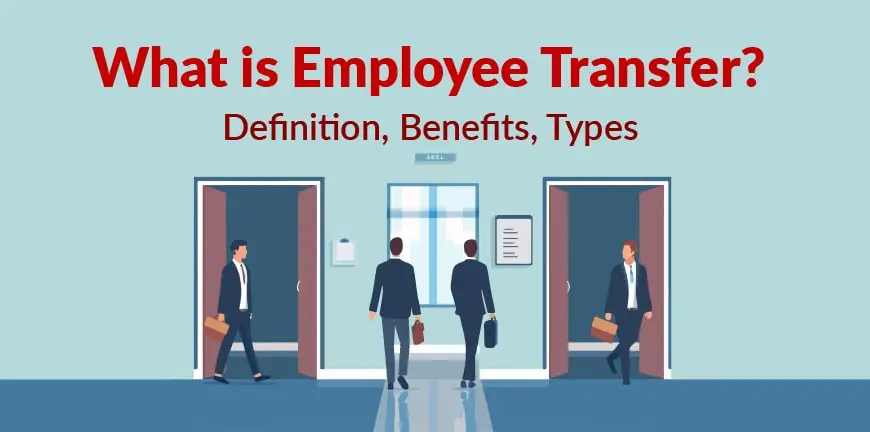
What is Human Resource Management (HRM)? An Expert Guide for 2025
06/04/2023
The Toxicity of Hustle Culture and How to Avoid It
11/04/2023Are Long Job Tenures Always Desirable?
Off course they are! If that weren’t the case, HR policies wouldn’t be drafted to encourage and reward long job tenures and create hurdles around hiring people whose previous job tenures have not been “long enough”. Long job tenures show an employee’s loyalty towards the organization and because they have been in the same job for a long time, they are better at what they do.
That’s what conventional wisdom says. But like many things in life, this conventional wisdom is also not based on sound evidence.
The notion that the job tenure is positively corelated with productivity is a conceptual hangover of the industrial age, when the labour force largely worked in a factory environment. But this truism is not so true for the modern knowledge economy where creativity, innovation and strategic thinking have become more commonplace and essential for getting work done.
The aim of this article is to assess whether employment tenure inhibits or contributes to productivity.
There is a concern that high average tenure indicates a “rigid” labour market with a low adjustment capacity to structural change and an assumed detrimental effect on productivity.
Research Findings on Job Tenue and Productivity Relationship
Different perspectives have evolved over the past decades on how job tenure affects job performance. There are two competing perspectives. According to Human capital theory – as knowledge and skill increase with longer tenure duration, job performance also improves. In contrast, the other perspective on job design suggested that, as job tenure increased, employees are more likely to become bored and less motivated.
To better understand the impact of job tenure on productivity, two professors from the University of Hong Kong and University of Georgia conducted a meta-analysis of the relationship of job tenure with four types of job performance: core task performance, citizenship behaviour, creativity and innovative behaviour, and counterproductive work behaviour.
Based on the analysis, the relationship between job tenure and performance revealed that job tenure was greatly unrelated to core performance, mildly related to citizenship behaviour and unrelated to innovative behaviour and counterproductive work behaviour.
The results also supported the hypothesis that longer job tenure led to employees getting bored or less motivated, resulting in lower productivity.
Successive investigations pointed to tenure as a vector of diminishing beneficial returns on performance.
Relationship between job tenure and productivity
In line with the most recent theoretical predictions, research results pointed out that job tenure exhibits a curvilinear relationship with productivity. What this means is the in the initial phase of a job tenure the productivity increases progressively but after a certain point the productivity starts decreasing. But this relationship differs on various parameters.
Based on firm characteristics
Findings indicated that the impact differs widely across firm characteristics. Tenure is particularly beneficial for productivity in contexts characterized by a certain degree of routineness and low job complexity.
Based on the nature of the firm and job complexity
Findings indicated that tenure is more relevant in industrial and capital-intensive firms and less reliant on ICT-intensive and knowledge-intensive processes.
Less complex jobs, like assembly lines or clerical work, have short learning curves. Therefore, an extensive tenure has a beneficial influence on performance but this does come with a setback. Because of the low complexity, decreasing returns to tenure are also likely to occur relatively quickly.
High-complex jobs, due to their higher intricacy, exhibit learning curves with increasing returns, so workers tend to rely on their cognitive abilities for a relatively long period. In this case, the rate of performance progression may be slow at the beginning but can ascend over time until one fully learns the job. It is possible to expect a delayed, positive impact of tenure on performance, but they also last longer.
Factors such as industry and the degree of capital, ICT, and knowledge intensity also affect the tenure-productivity relationship.
Companies with simpler production processes, such as industrial and low-knowledge-intensive ones, coinciding with low job complexity and high task routines, have easier learning curves resulting in a longer job tenure expected to have a more prominent influence on performance.
What Does This Mean for HR Leaders?
The evidence on the relationship of job tenure and productivity is pretty clear – long job tenures are detrimental for the efficiency and productivity and efficiency of the modern organization. For semi and highly skilled jobs, super long tenures are not desirable!
But what does this mean for HR decision makers? Should they start firing people who have served in the same job for a long time? Also, how long is long enough? How long should job tenures be for achieving maximum productivity?
There are no simple answers to the above questions. It all varies from organization to organization. But two things are clear:
Paradigm Shift
It’s high time we stop discriminating against people who have relatively shorter job tenures, purely on that basis, without considering the impact they made on the organization or the results they achieved. In the current job market when there is a talent crunch, we need to change our yardstick of who is an ideal employee. It’s time for a paradigm shift.
Rewiring Job Profiles
It’s also high time we moved ahead of mere tokenism of 5-year/10-year work anniversary celebrations and actively worked on creating “new job profiles” for long tenured employees so that we can keep deriving increasing returns on their job tenures and given them a chance to make a bigger impact on the organization and reward them adequately for their achievements. “Rewiring” on the job profiles of employees after certain period (ascertain this period for your own organization) is a great strategy to keep getting increasing returns on their job tenures in terms of productivity.
In conclusion
Extensive tenure, as well as short tenure, can have adverse effects on productivity.
But there are ways to lower these effects, particularly in areas where the tasks, sectors, and occupations are more likely to experience long-term deteriorating effects of tenure on productivity.
For routine tasks and low job complexity, HR needs to pay attention to the decreasing marginal benefits of tenure. HR can take active steps to minimize the risks of continuance commitment, boredom, and lower engagement and motivation, achieve better recognition and appreciation, improve the attention to workers’ needs, and foster career advancements through training, coaching, mentoring, and flexibility opportunities.
Managers heading knowledge-intensive firms should pay particular attention to avoid productivity losses due to high tenure. In such contexts, higher percentages of long-tenured workers become detrimental to productivity, fearing the need to rely on new, updated knowledge from the outside.
Contact Us For Business Enquiry

Rajkumar Shanmugam
Rajkumar Shanmugam is the Head of HR at ALP Consulting, bringing over 19 years of comprehensive HR leadership experience across India and international markets. His expertise spans talent acquisition, employee relations, performance management, compliance, and HR transformation. Rajkumar has a proven track record of driving people-centric initiatives, enhancing workplace culture, and aligning HR strategy with business goals. With extensive experience in US staffing operations and global mobility, he continues to lead organizational excellence through innovation and employee engagement.




